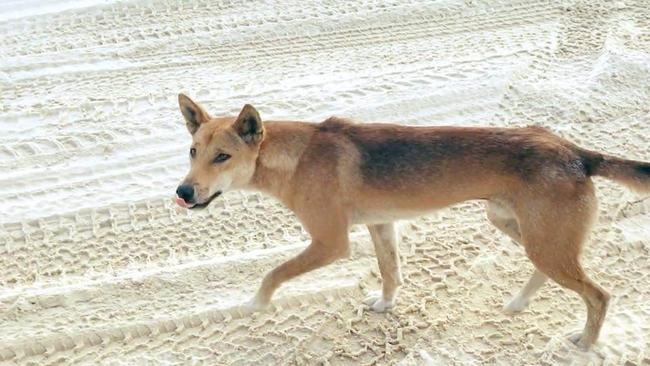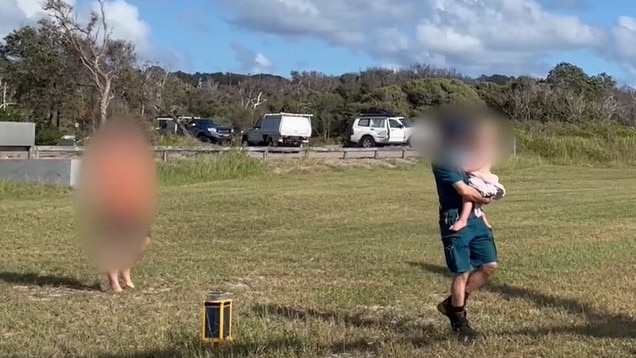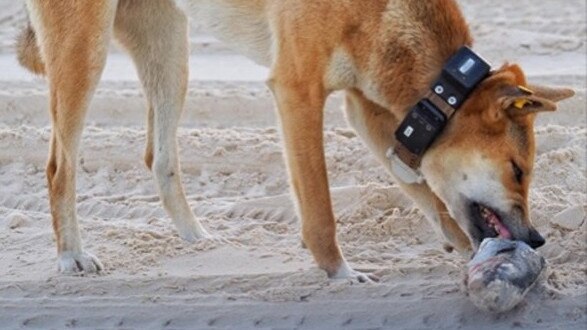Calls to desex ‘tame’ dingoes, target problem pack before tragedy strikes
A Fraser Island conservationist is calling for a different kind of action to be taken before a child is killed on Fraser Island. It comes after two attacks in two weeks.

Fraser Coast
Don't miss out on the headlines from Fraser Coast. Followed categories will be added to My News.
Urgent action needs to be taken on “tame” Fraser Island dingoes if a Clinton Gage-style tragedy is to be avoided.
That is the view of conservationist Mike West, who told the Chronicle the number of habituated dingoes on the island meant things had to change.
He doesn’t agree with euthanasia unless it is a last resort.
Instead, he would prefer to see problem dingoes desexed.
“As we know, habituated dingoes spawn habituated cubs that never learn to hunt, relying on handouts and what they can scavenge from human generated food,” he said.
“Instead of euthanising habituated dingoes they could be desexed, we could stop them from producing any habituated dingoes.”
It comes as authorities continue to concerns about the increasing threat posed by interactions between people and dingoes at the popular tourist destination.
Already this year, nine infringement notices have been issued to people caught feeding or interacting with dingoes or failing to secure their food.
In recent weeks, a two-year-old boy who had wandered from a holiday home at Orchid Beach suffered bites to his head, neck, shoulders and body in a serious attack that only ended when neighbours intervened.

Then on Saturday, a four-year-old boy was bitten on the leg, but did not need medical treatment.
“Over the last couple of years we have seen the worst examples of dangerous dingo attacks on women and children since the tragic death of Clinton Gage,” Mr West said.
Clinton was killed in an dingo attack on the island in April, 2001.
Mr West also hit out at “dingophiles” who were against putting down any dingoes no matter the circumstances.
He said authorities were under pressure from the groups who were against destroying dingoes that “exceed the guidelines set by the government”.
“These groups have even convinced the Premier, Annastacia Palaszczuk to remove a collar, which would effectively saved a dingo from being euthanised,” Mr West said.
It is understood the problem dingo known as Yellow Tag would have been euthanised if not for a tracking collar that allowed rangers to track her movements.

After a public campaign, the collar has since been removed.
“The only threats to humans from dingoes are from dingoes who are not afraid of humans,” Mr West said.
“All ‘wild’ dingo encounters on K’gari result in the dingoes giving humans a wide berth.
“These dingoes are no threat to anyone.
“A new policy should concentrate wholly on the habituated dingoes and must include a plan to rid the island of these ‘tame’ dingoes.”
A spokesman from the Department of Environment and Science said a management program was being finalised for the Orchid Beach dingo pack.
“So far in 2021, there has been 25 Code D interactions and 12 Code E interactions,” the spokesman said.
“Code D interactions include threatening behaviour and dominance testing. Code E interactions including high risk behaviour like nipping and biting.
“QPWS reminds visitors and residents on the island never to feed or interact with dingoes and secure all food and rubbish.
“When dingoes lose their natural wariness of people, they can loiter around campsites and townships.
“A fed dingo is a habituated dingo, and they can become aggressive and attack people when seeking food.”
The minimum fine for intentionally feeding or disturbing dingoes is $2135 and the maximum is $10,676 per offence.
“Residents and visitors to the island are reminded that a dingo pack at Orchid Beach is exhibiting habituated behaviour, and could approach people for food.
“It is extremely important for parents to keep all children at arm’s length at all times while on the island.”


